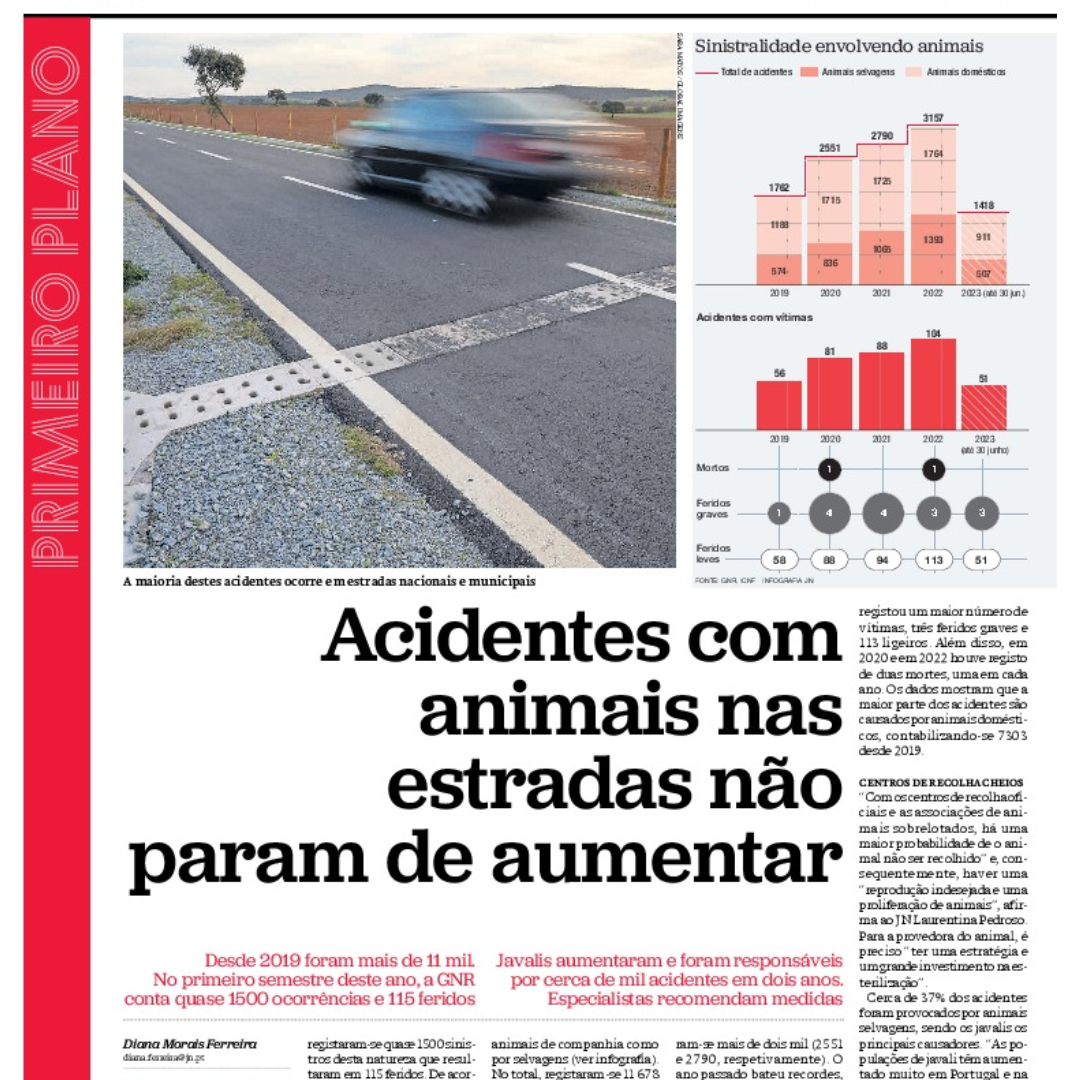Rita Torres, a researcher from CESAM/DBio, in an interview with Jornal de Notícias, discussed road accidents caused by wild animals and revealed that between 2019 and 2020, there were more than 1000 accidents caused by wild boars.
The researcher mentioned that in her research project, “We used data from a 2-year monitoring of road accidents involving wild ungulates (wild boar, deer, and roe deer) to assess the factors influencing the likelihood of accidents in Portugal. A total of 1,306 accidents were recorded (2019 and 2020), involving the three species of wild ungulates with the greatest presence in Portugal. The wild boar was involved in the majority of accidents (83.7%), followed by the deer (9%) and the roe deer (7.3%). Our data, although focused on two years, confirm the results described in the literature, showing that the wild boar is the ungulate species most commonly involved in road accidents on the Iberian Peninsula. This fact is also potentially indicative of its high population density in our country, compared to other ungulate species, with the wild boar being more abundant and widely distributed in mainland Portugal, occupying almost the entire national territory.”
Rita Torres played a crucial role in the development of the Strategic and Action Plan for the Wild Boar, promoted by ICNF – Institute for Nature Conservation and Forests, and also drew attention to the increase in road accidents on weekends, especially on Sundays, as well as in the late afternoons and during the night. During these times, it is essential for drivers to exercise extra caution, particularly in areas characterized by significant forest cover.
Furthermore, her work also indicates that “road planning should take into account land cover to avoid the formation of critical accident spots. Proper forest management along roadsides, reducing vegetation near the road, can decrease the attractiveness of the habitat for wild boars while improving driver visibility, potentially reducing the risk of accidents.”
To read the complete article, click here.
